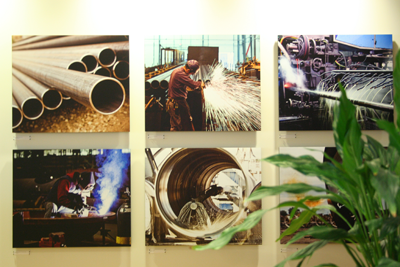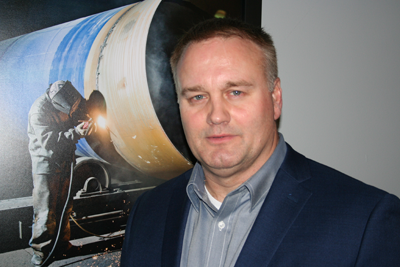As we go through our daily lives, we rarely give a thought to the infrastructure that makes our quality of life possible, not the least of which is the extensive underground water piping that provides us with clean drinking water and an adequate water supply, essential to public health and to the safety and growth of our communities. However, as evidenced by public health dangers, such as the recent water crisis in Flint, Michigan, the nation’s water infrastructure, most of which was built at least 50 years ago, is literally crumbling beneath our feet, requiring an estimated $1 trillion investment over the next 25 years, according to the American Waterworks Association (AWWA). Indeed, investment in the country’s infrastructure has lately been a topic of discussion, coinciding with a proposed massive infrastructure investment by the new administration. It seems that we will inevitably see a major focus on replacement and repair of existing infrastructure, including water, over the coming years.
 Perfectly poised to meet this crucial need is Vancouver-based Northwest Pipe Co., one of the biggest national players in the manufacturing of high pressure steel pipe used for water transmission lines.
Perfectly poised to meet this crucial need is Vancouver-based Northwest Pipe Co., one of the biggest national players in the manufacturing of high pressure steel pipe used for water transmission lines.
Founded in 1967 in Clackamas, Oregon, Northwest Pipe Co. was pivotally involved in alleviating the water issues stemming from the explosion of Mount St. Helens in 1980, which contributed to their growth at the time. After national success in the water transmission business, with plants and projects from coast to coast, the company branched into energy tubular products, which are involved in the transmission of oil and gas.
After having moved to their headquarters to Vancouver in 2008, Northwest Pipe Co. CEO, Scott Montross, notes that Vancouver has been an exciting place to be based – a developing area with great access, aesthetics and a skilled talent pool.
 CEO since 2013, Montross has led the company to make some major moves to exclusively focus on their core business and the industry expertise they were founded on: water transmission.
CEO since 2013, Montross has led the company to make some major moves to exclusively focus on their core business and the industry expertise they were founded on: water transmission.
Part of this strategy has been to sell and disable the energy tubular aspect of the business following the crash of the energy market and to focus exclusively on the water transmission and their plants in California, Oregon, Missouri, Texas, Washington and Utah, with a recent closure of the Denver plant due to an insufficient water market.
Although downsizing from roughly 1,200 employees to 650 globally, Northwest Pipe Co. has recently made aggressive strides in becoming the nation’s largest supplier of water transmission pipes, notably acquiring Permalok Corp. (fabricator of a patented interlocking joint system for piping that increases efficiency in installation of pipe systems) in early 2014, winning major projects across the nation and capitalizing on the increasing demand and selling prices of the product.
All of these recent changes have reflected clearly in the fluctuation of the company’s stock price over the last couple of years. One of Clark County’s few publicly listed companies, Northwest Pipe Co. has seen selling prices as high as $41 per share a couple of years ago to a low of $7.50 per share as of February of this year, during the latter part of the energy market crash while the company was in the process of divesting their energy tubular business.
Currently, with stocks at around $18, Montross said he’s optimistic, explaining, “today we are seeing a market that is improving and since our business is based significantly on infrastructure work, the planned spending from the new administration [is a good sign], as well as general demand for the improvement of water transmission lines, much of which has been built up over the last 10-15 years. Often, water infrastructure has been lower on the list, but there has recently been raised awareness of the criticality of our water infrastructure. Things are getting better, and it’s an interesting time when you look at the potentials going forward.”
Montross and Northwest Pipe Co. were quick to see water infrastructure is poised for major growth in the coming years. Because water pipe systems are generally long lasting, the U.S. has so far been able to avoid a major restructuring and replacement of old systems. However, due to aging and inadequate infrastructure, the AWWA estimates that of the $1 trillion investment needed over the next two-and-a-half decades, 54 percent is attributed to replacement, and 46 percent due to population growth; the West Coast will be seeing a major need for new and replacement water infrastructure, mainly due to the rapid population growth that shows no signs of slowing.
Traditionally, the U.S. has lagged behind other developed countries in terms of infrastructure investments, but that has slowly been changing over the last couple of years. The new administration has made the news as of late with a proposed $1 trillion investment over the next 10 years. Whether it will find the necessary support is debatable, but the move has drawn attention to the extensive infrastructure challenges the U.S. continues to face, not least of which being water infrastructure.
In the face of these coming opportunities, Montross said Northwest Pipe Co. is ideally positioned to handle these needs effectively.
“The spending on water transmission has been sparse in last several years, but we are about to see increased spending due to the build up of projects and population growth,” he said. “We see a tremendous amount of need built up over the last several years and as one of the biggest guys in the market, we are well positioned to take care of build-out on requirements all over the country, including in the Pacific Northwest.”
Recently being awarded their fifth major contract on the major Integrated Pipeline Product in Texas, Northwest Pipe Co. continues to win large projects nationally and locally. The company is also working on the Willamette Project, a 30-mile-long water supply project in Tualatin, Oregon.
Northwest Pipe Co.
5721 SE Columbia Way #200 Vancouver www.nwpipe.com Founded 1967







